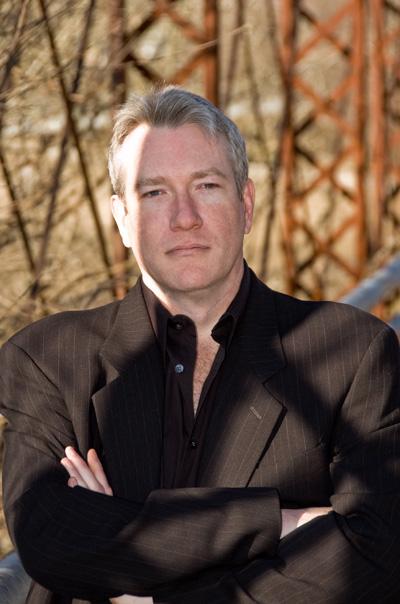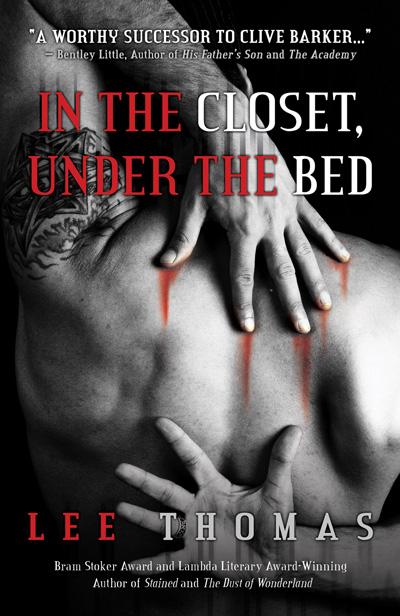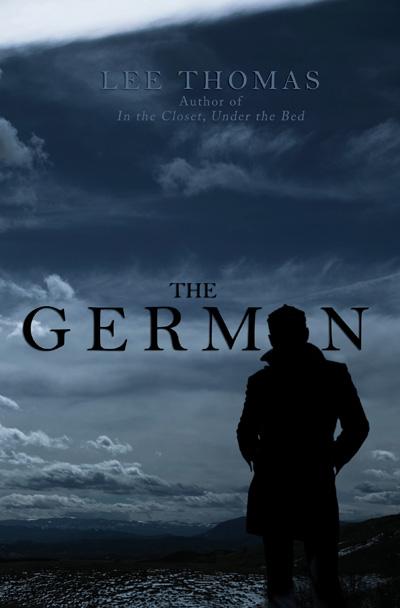Lee Thomas, an award-winning American queer horror author, in a phone interview from his Austin, Texas, home, derides teen-targeted television.
“Are you really watching The Vampire Diaries?” Thomas asks John, his boyfriend since 2001. They met in the Dugout, a New York City bear bar. “What is wrong with you?”
The 45-year-old Thomas has earned accolades from the horror and queer communities. His first novel, Stained, a Southern gothic horror story, clinched the Bram Stoker Award, presented by the Horror Writers Association for superior achievement.
In the Closet, Under the Bed, his short story collection that skewers closeted men and heterosexual relationships, won a Lambda Award.
“Being gay, I have a huge point of reference for the queer side of it [horror],” Thomas says about his path to horror prose. A few years ago, he noted that the queer content produced by luminaries Poppy Z Brite, Clive Barker and writer/editor Michael Rowe (the editor of the Queer Fear anthologies) left room for more.
“To me, it looked like an open field,” Thomas says. “I figured if I told the kind of stories I wanted to tell that they would, due to the subject matter, have originality. As a writer, you want to explore things you haven’t seen other writers doing, find your own voice, your own stories, bring your experiences to it.”
He etches his experiences with a merciless eye for le mot juste and indelible description. The straight hero in the story “All the Faces Change,” for example, scorns his male high school love, pressured by his homophobic father. Years later, his ex returns to exact a price from the respectable married man.
Thomas’s men face the supernatural, but these are gay men, surfing chat rooms, hooking up in cars, meeting in cafés, accepting new experiences and often having strained relationships with their fathers. Thomas concedes that he writes about his own distant, indifferent relationship with his father.
“Much of that is coming out in the work,” he says, joking that he has more daddy issues than an Atlantic City stripper. “If I go into it too deeply on a Freudian level, I could probably just diffuse it, which would be probably bad for the work. I accept it for what it is.”
His work does move beyond father-figure fixation, however. Under various pseudonyms, Thomas pens young adult fiction for HarperTeen. His new novel, The German, out this summer from Lethe Press, is a thriller set in 1944 that features a queer ex-Nazi protagonist.
“I’ve always been attracted to the dark side of things,” says Thomas. As a youngster, he watched Boris Karloff in Universal Picture’s 1931 Frankenstein. “I’ll tell you, when he turned around from that doorway, bam! I’ve been trying to find that thrill – that shock – again my whole life.”
While growing up near Seattle, Thomas wrote as a hobby. In 2000, with an undergrad degree in communications, he moved to New York to work as a public relations consultant. He enrolled in Terry Bisson’s science-fiction writing class at the New School. Bisson suggested that Thomas try selling his stories. Encouraged, Thomas submitted six pieces to different markets; four were accepted.
In New York, Thomas’s horror venture took a decidedly Canadian turn. He met Michael Rowe at the 2005 World Horror Convention on a standing-room-only panel discussion about queer characters in horror fiction.
“He was just so bright,” Thomas recalls. “His Queer Fear books paved the way for a lot of the work I do. Like the queer content in Clive Barker’s Books of Blood, the stories didn’t pander or apologize or defend queer life; they just included it in great stories.”
Last year, Toronto’s Burning Effigy Press also published Thomas’s horror chapbook, The Black Sun Set.
When not pitting his characters against the unknown, Thomas judges the Shirley Jackson Awards, co-chairs the World Horror Convention in Austin, Texas, and is working on his masters in fine arts (specifically, writing).
Thomas was not just a late bloomer in the publishing business; he was 20 before he had his first gay sexual experience.
“After that, it never occurred to me that I was straight,” Thomas says. “There was no period of hiding or shame; it just took me a while to figure out what was going on.”
Now that Thomas has, the voices in his fiction are chillingly familiar.
“I have issues with closeted people, which is why I kill them in stories,” Thomas says. “I feel empathy for them, obviously. I think that comes out in some of the pieces.”




 Why you can trust Xtra
Why you can trust Xtra


